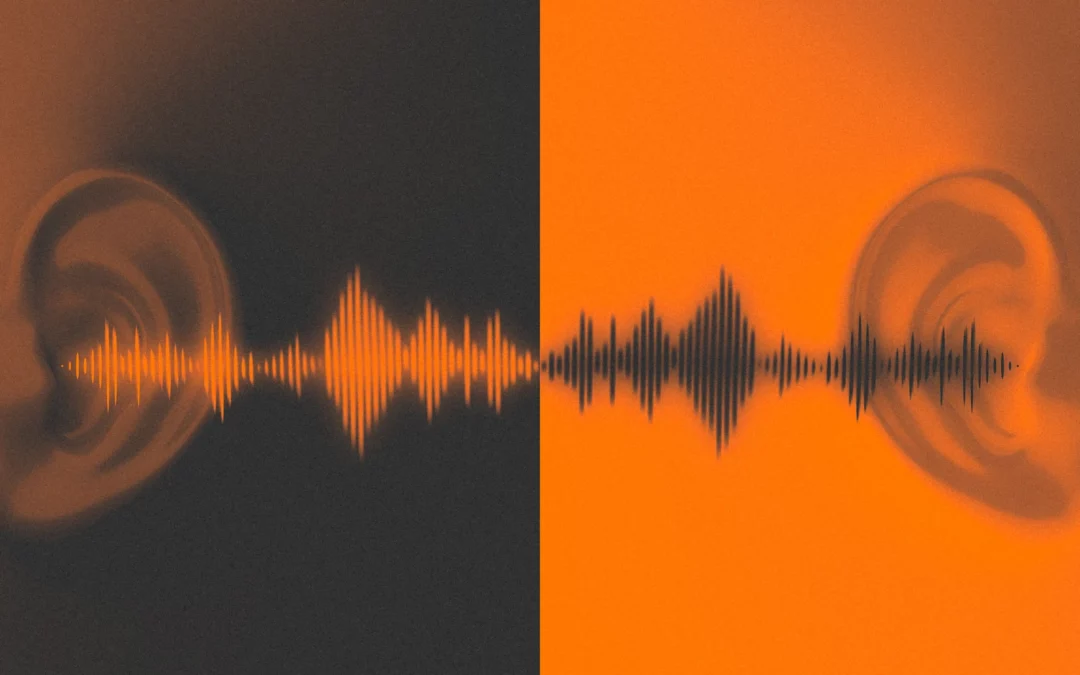SoundCloud was the subject of an online uproar over the weekend when critics discovered an amendment to the platform’s terms of service that pertains to AI training.
The policy update, which was implemented in February 2024, stipulated that “You explicitly consent to the use of your Content as input to artificial intelligence or machine intelligence technologies or services for the purpose of providing the services, training, development, or information.”
The company’s selection of language was met with vehement criticism from both artists and prominent AI experts, including Ed Newton-Rex, the founder of the non-profit Fairly Trained.
READ MORE: SoundCloud Uses PubMatic To Power Programmatic Display And Video Advertisements
You can understand why individuals who are dedicated to the preservation of music rights are becoming more apprehensive about this matter.

Multiple gen-AI platforms are being sued by music rightsholders for alleged enormous copyright infringement. In the interim, OpenAI and other organizations are advocating for the relaxation of current laws to enable technology companies to train their models on copyrighted material without facing legal repercussions.
President Donald Trump, one of those political leaders, terminated the most senior copyright-related public servant in the United States this past weekend. The reason for her termination was the publication of a report that dared to suggest that it may not be entirely legal for Sam Altman and Elon Musk’s AI technology to consume every song ever created.
READ MORE: SoundCloud Uses PubMatic To Power Programmatic Display And Video Advertisements
Before the industry-wide fever peak we observe today, SoundCloud’s quiet February 2024 update was a significant event.
However, the contentious language of the organization’s AI policy revision likely caught the attention of those who have witnessed SoundCloud’s prior commitment to ethical AI practices, such as the agreements it signed with Fadr, Soundful, and Voice-Swap last year.

It is also likely to have alarmed music rightsholders who are preoccupied with the possibility that Spotify or Apple Music may attempt to emulate its approach.
Today (May 14), Eliah Seton, the CEO of SoundCloud, has taken the initiative to address the “confusion” that has been generated by his company’s selection of language in its terms of service with respect to artificial intelligence.
The most significant development is that Seton has verified that SoundCloud is currently revising the problematic text in its Terms of Use.
According to Seton, the recent modifications “unequivocally establish” that SoundCloud will not utilize artists’ content to “train generative AI models that seek to replicate or synthesize your voice, music, or likeness.”
“The previous version was too broad and not sufficiently clear,” Seton admits.

He also states that SoundCloud may make this opportunity available to its human artists with their explicit assent, via an opt-in mechanism, if gen-AI technology arises in the future that presents essential opportunities for SoundCloud artists and requires training on their content.
Furthermore, SoundCloud is also committing to a “formal commitment” that “any use of AI on SoundCloud will be based on consent, transparency, and artist control,” as Seton referred to it.
The following contentious sentence is eliminated as the primary modification to the language in the terms of service:
“You explicitly consent to the use of your Content as input to artificial intelligence or machine intelligence technologies or services as part of and for the provision of the services, in the absence of a separate agreement that specifies otherwise.”
In its stead, SoundCloud is incorporating the subsequent line:
“We will not utilize Your Content to train generative AI models that are designed to replicate or synthesize your voice, music, or likeness without your explicit consent, which must be supplied affirmatively through an opt-in mechanism.””

Seton anticipates that these modifications will be implemented online within the next few weeks.
Critics of the previous policy may perceive the inclusion of the “opt-in mechanism” in SoundCloud’s terms as a significant victory.
In an opinion piece published in MBW this week, Ed Newton-Rex stated, “Opt-out mechanisms for generative AI training are hugely unfair to musicians, for a heap of reasons I’ve talked about before.”
READ MORE: Programmatic Audio Is A Challenging Market. So SoundCloud Is Leading In Display And Video
“AI will be a component of the evolving music industry.” It presents new opportunities, but it also presents significant obstacles. That is why our methodology will consistently be in accordance with a singular principle: “artist-first.”
Eliah Seton, SoundCloud
In an open letter to SoundCloud artists, Seton explicitly states, “AI should support artists, not replace them.” This will continue to be reflected in the use of these tools on SoundCloud.
Seton continues, “AI will be a component of the evolving music industry.” It presents new opportunities, but it also presents significant obstacles. That is why our methodology will consistently be in accordance with a singular principle: “artist-first.”

The entire letter from Eliah Seton is available for your perusal below:
A Letter from Our CEO: A Clarification of Our Terms of Use
To Our Artist Community,
In recent days, there has been a significant amount of discussion regarding our 2024 Terms of Use update, which was designed to elucidate the manner in which content may interact with AI technologies within SoundCloud’s platform.
I would like to take this opportunity to address you, our artist community, directly regarding the truth, the falsity, and our forthcoming actions.
Initially, it is imperative that we establish a distinct understanding.
SoundCloud has never employed artist content to educate AI models. Not intended for the production of music. Not suitable for models that involve numerous languages. Not for any endeavor that attempts to replicate or supplant your work. Period. We do not develop generative AI tools, nor do we permit third parties to extract or utilize artist content from SoundCloud for the purpose of training them.
In reality, we have already implemented safeguards, such as a “no AI” marking that explicitly indicates that SoundCloud content is not suitable for AI training. SoundCloud has a long history of preserving the rights of artists, and our commitment to putting the artist first is not merely a slogan. It is fundamental to our identity and will remain so indefinitely. Our DNA is predisposed to this.
So, what transpired?
In February 2024, we revised our Terms of Use to specify the internal use of AI to enhance the platform for both artists and admirers. This encompasses the advancement of intelligent recommendations, search, playlisting, content labeling, and fraud prevention tools.

Our utilization of AI is concentrated on discovery, with the objective of assisting fans in discovering new music and facilitating the growth of artists, beginning with their initial fan base. That is the essence of our mission. Three years ago, we enhanced our AI and machine learning capabilities by acquiring Musiio. This acquisition substantially enhanced our ability to connect creators with listeners, facilitate music discovery, and assist rightsholders in identifying what’s next. Since that time, we have provided over 7 million track recommendations to potential new audiences through First Fans, our recommendation algorithm for Artist Pro subscribers, thereby assisting artists in being discovered and heard more quickly.
In a broader sense, we employ AI to recognize emerging talent, personalize the platform experience, and provide real-time customer service. These features are intended to assist human artists and engage genuine followers.
AI has been and will remain a critical component of the process of enhancing SoundCloud for the individuals who operate it.
However, the language in the Terms of Use was excessively broad and inadequately explicit. It resulted in confusion, and we are responsible for it. This is the reason we are rectifying the situation.
What we are currently engaged in:

SoundCloud will not utilize your content to train generative AI models that are designed to replicate or synthesize your voice, music, or likeness (see detailed terms below). We are in the process of revising the Terms of Use to ensure that this is entirely explicit.
Given the rapid evolution of the landscape, we may provide our human artists with the opportunity to utilize generative AI for their benefit, provided that they provide their explicit assent through an opt-in mechanism. We are obligated to provide our human artists with the opportunities, choices, and control necessary to advance their creative endeavors, as we are unaware of what we do not know.
We are committing in writing that any utilization of AI on SoundCloud will be predicated on transparency, consent, and artist control.
Our stance is straightforward: AI should augment the work of artists, not supplant them. This will continue to be reflected in the use of these tools on SoundCloud. The Terms of Use, which can be accessed here, will reflect these modifications online in the upcoming weeks.
AI will be a component of the evolving music industry. It presents new opportunities, but it also presents significant obstacles. That is why our methodology will consistently be in accordance with a singular principle: artist-first.
We will persist in our commitment to transparency. We will continue to actively observe. We will ensure that you are kept informed and engaged at every stage. Thanks for your participation in the SoundCloud community and for ensuring that we all adhere to the shared values.
SoundCloud Revised Terms of Use as of May 14, 2025:
By uploading your Content to the Platform, you also grant a limited, worldwide, non-exclusive, royalty-free, fully paid up, license to other users of the Platform, and to operators and users of any other websites, apps and/or platforms to which your Content has been shared or embedded using the Services (“Linked Services”), to use, copy, listen to offline, repost, transmit or otherwise distribute, publicly display, publicly perform, adapt, prepare derivative works of, compile, make available and otherwise communicate to the public, your Content utilizing the features of the Platform from time to time and within the parameters set by you using the Services. We will not use Your Content to train generative AI models that aim to replicate or synthesize your voice, music, or likeness without your explicit consent, which must be affirmatively provided through an opt-in mechanism.
For the avoidance of doubt, neither SoundCloud nor any third party is allowed to use, copy or reproduce any Content delivered to the Platform under separate agreements, which is owned or controlled by third party rights holders (including artwork, images, logos, audio and audiovisual recordings (and any part thereof), underlying musical works and lyrics, and metadata) for the purposes of informing, training developing (or as input to) artificial intelligence technologies without authorization from the applicable rightsholders. You can limit and restrict the availability of certain of your Content to other users of the Platform, and to users of Linked Services, at any time using the permissions tab in the track edit section for each sound you upload, subject to the provisions of the Disclaimer section below. Notwithstanding the foregoing, nothing in these Terms of Use grants any rights to any other user of the Platform with respect to any proprietary name, logo, trademark or service mark uploaded by you as part of your Content (for example, your profile picture) (“Marks”), other than the right to reproduce, publicly display, make available and otherwise communicate to the public those Marks.Music Business Worldwide
Step into the ultimate entertainment experience with Radiant TV! Movies, TV series, exclusive interviews, live events, music, and more—stream anytime, anywhere. Download now on various devices including iPhone, Android, smart TVs, Apple TV, Fire Stick, and more!


